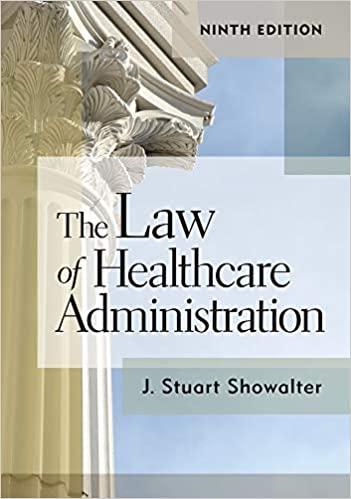This case arises from an antitrust challenge to the actions of a state regulatory board. A majority
Question:
This case arises from an antitrust challenge to the actions of a state regulatory board. A majority of the board’s members are engaged in the active practice of the profession it regulates.
The question is whether the board’s actions are protected from Sherman Act regulation under the doctrine of state-action antitrust immunity, as defined and applied in this Court’s decisions beginning with Parker v. Brown, 317 U. S. 341 (1943).
[North Carolina law provides that the State Board of Dental Examiners is “the agency of the State for the regulation of the practice of dentistry.” The board’s principal duty is to create, administer, and enforce a licensing system for dentists; six of its eight members must be licensed, practicing dentists.
The act does not specify that teeth whitening is “the practice of dentistry,” but dentists started providing the service in the 1990s. By 2003, cosmetologists and other nondentists started charging lower prices for the same services, and the dental board began to issue cease-and-desist letters warning that the unlicensed practice of dentistry is a crime. This and other threatening actions led nondentists to stop offering teeth whitening services, but some of them complained to the Federal Trade Commission (FTC), which began an investigation.
In 2010 the FTC filed administrative charges alleging that the dental board’s concerted action to exclude nondentists from the market for teeth whitening amounted to an anticompetitive and unfair method of competition under the Federal Trade Commission Act. The dental board moved to dismiss the complaint on the ground of “state-action immunity,” but the FTC denied that motion, ruling that even if the board had acted pursuant to a clearly articulated state policy, it must be actively supervised by the state to claim immunity, which it was not. This ruling was ultimately affirmed by the US Court of Appeals for the Fourth Circuit, and a petition for certiorari to the Supreme Court followed.]
Federal antitrust law is a central safeguard for the Nation’s free market structures.
In this regard it is “as important to the preservation of economic freedom and our free-enterprise system as the Bill of Rights is to the protection of our fundamental personal freedoms.” The antitrust laws declare a considered and decisive prohibition by the Federal Government of cartels, price fixing, and other combinations or practices that undermine the free market.............
Discussion Questions
1. What does Justice Kennedy mean by the term “active market participants”?
2. What kind of “active supervision” might the state have engaged in to yield a different outcome to this litigation?
3. In every state there are professional licensing boards similar to the North Carolina dental board. How, if at all, does this decision hamper state boards that license physicians,
nurses, and other healthcare professionals?
4. Compare this decision with that of the court in Phoebe Putney to the case of Patrick v.
Burget in chapter 8. How are they similar, and where do they differ?
5. By virtue of the HCQIA, which was passed in response to Patrick, “active market participants” involved in peer review are immune from liability. How are the actions of the members of the North Carolina dental board different?
Step by Step Answer:






